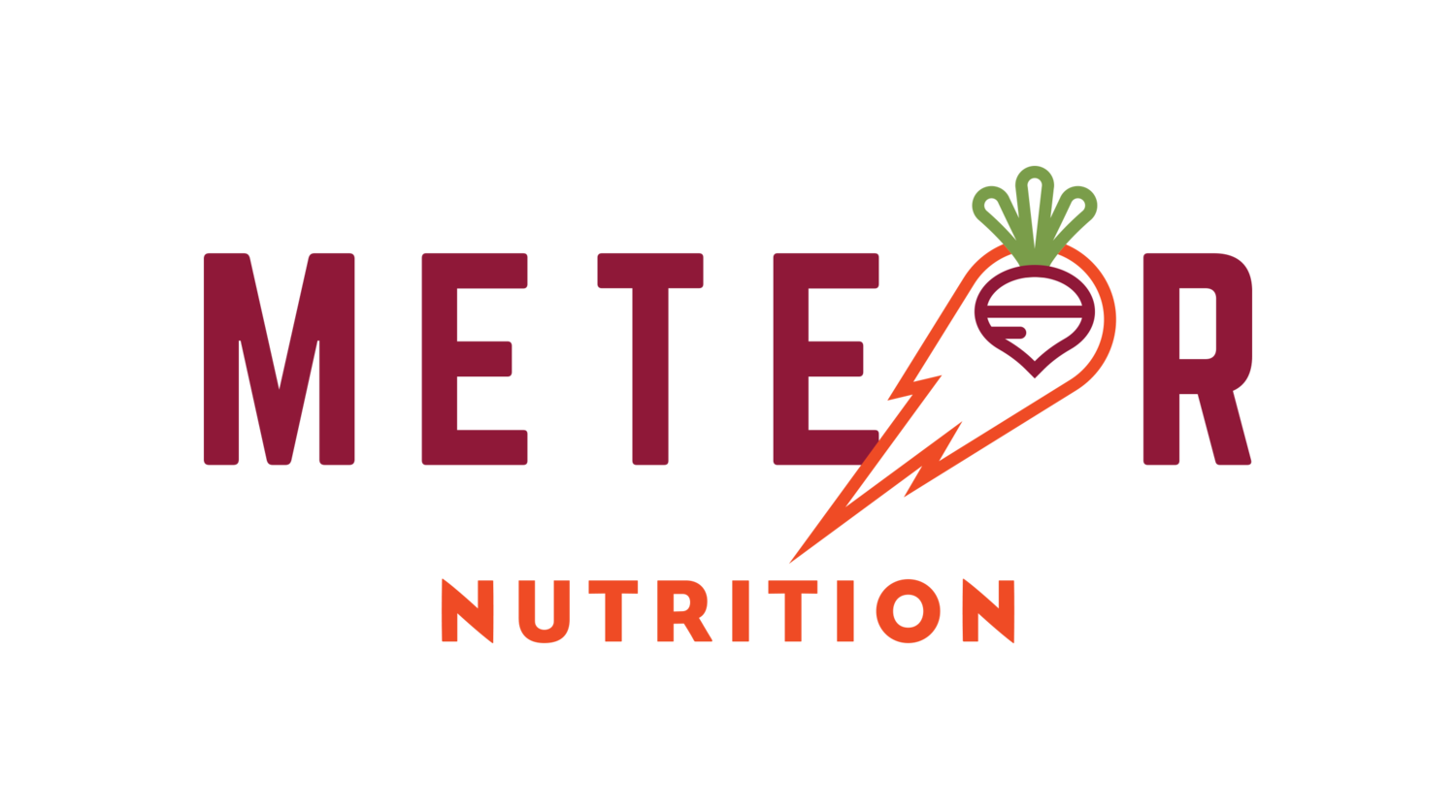Navigate the Holiday Season with Meteor's Mindful Nutrition Roadmap
When it comes to training, most endurance athletes are creatures of habit.
We build our schedules around our training plans, ensuring that we never miss a Tempo Tuesday or Sunday long-run. Many of us adhere to the same routines with nutrition, sticking with our tried-and-true staple meals. The holiday season can disrupt this routine, leaving runners feeling uncertain about their nutrition goals.
Seasonal treats and parties can bring about questions that dampen the holiday spirit:
How do I stick with my fueling routine during the holidays?
What should I eat at Thanksgiving dinner?
Do I have to skip my grandma’s famous pumpkin cheesecake? (hint: the answer is no!)
If these questions have crossed your mind, keep reading for a nutrition roadmap to help you eat mindfully through the holiday season.
Meteor’s Top Tips for Holiday Nutrition
Build a balanced breakfast:
Holiday travel can disrupt your usual routine, but that’s no excuse to miss a morning meal. To make the most of breakfast, focus on protein and fiber (hint: fiber is found in fruits, veggies, and whole grains). These nutrients are slow-digesting to keep you full and focused throughout your busy holiday morning. Need ideas? Try a bowl of yogurt with granola and berries, or a veggie omelet with whole grain toast.
Fuel for performance:
Whether you’re running a Turkey Trot or hitting the gym, don’t skip the pre-exercise snack. Eating a small, carbohydrate-based snack before exercise provides fuel to keep you moving. If you’re traveling for a seasonal race, pack an applesauce pouch, granola bar, or banana for on-the-go fuel.
Eat a nutrient-dense lunch:
Skipping lunch to “save calories” for a large holiday meal is common practice, but it’s NOT dietitian-recommended. Showing up on an empty stomach often backfires, resulting in a binge (for more on the restrict-binge cycle often seen in endurance sports, check out this Instagram post). Instead of arriving ravenous, eat a light, nutrient-dense lunch. Just like with breakfast, protein and fiber should be the stars of the show. Make half your plate fruits and veggies, and include a filling source of lean protein. Choose a high-fiber carbohydrate source, like whole wheat bread, brown rice, or potatoes, to round out the meal.
Don’t skimp on snacks:
When hunger calls, pick up the phone. Ignoring hunger cues can lead to overeating later in the day, especially in the presence of decadent holiday treats. Skipping snacks can also leave you feeling exhausted and grumpy, which is a surefire way to spoil the holiday spirit. Munch on balanced snacks, such as cheese and crackers, veggies and hummus, or apples and peanut butter, to keep hunger at bay. If you’re out-and-about all day, pack portable snacks like a protein bar or trail mix. Nobody is a good gift buyer when they’re RUNgry.
Indulge with mindfulness:
A holiday table brimming with seasonal foods can be overwhelming. Instead of stressing out, use your nutrition skills to build a balanced plate. Select one or two options from each food group, and choose portions in accordance with training needs.
Carbohydrates: Mashed potatoes, sweet potatoes, stuffing, dinner rolls, cornbread, macaroni
Protein: Turkey, ham, roast beef, cheese cubes, meatballs, shrimp, cocktail sausage
Fruits and veggies: Salad, green bean casserole, roasted vegetables, corn
Fat: Dishes with cheese, butter, and oil contain fat
Appetizers are a fun way to sample a wide selection of foods, since they’re served in bite-sized portions. When it’s time for dinner, fill one plate with mindful portions of your favorite foods. Sit back, relax, and enjoy conversations with friends and family while you eat. Before grabbing a second helping, assess your hunger cues. Will another serving leave you satisfied, or will you feel stuffed and uncomfortable? At the dessert table, choose one treat that looks delicious, and take mindful bites until you’re comfortably full. If you can’t decide between the sugar cookies, raspberry cheesecake, and lemon bars, split a few treats with a friend.
Relax and move on:
Did your holiday meal go exactly as planned, or did you eat a few extra slices of pecan pie? Regardless of your answer, it’s important to practice self-compassion. Instead of throwing in the towel on your nutrition goals, give yourself grace, and return to your normal routine. Your body is smart, and it knows how to use these special treats for fuel. There’s nothing wrong with a few indulgent meals, but turning the holiday season into a three-month binge-restrict cycle can be harder to overcome. Resist the urge to limit your intake after a holiday meal. Instead, pay attention to your hunger cues, and focus on eating nutrient-dense foods. Drink lots of water, incorporate mindful movement, and focus on the bigger picture. Remember, the holidays are a time of joy and cheer!
Keep in mind, these are GENERAL tips. I work 1:1 with my clients to develop a system that makes since for their holiday routines that does not negate performance. Need help knowing what that looks like for you? Apply to my 1:1 nutrition coaching program.
